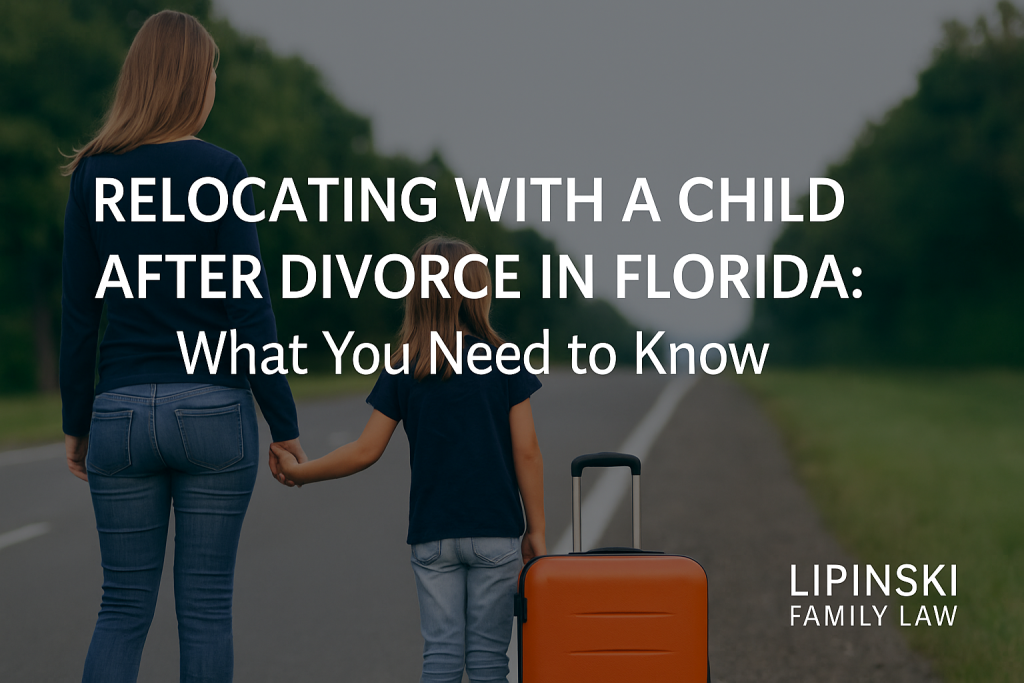
After a divorce, many parents consider a fresh start—and sometimes that includes moving to a new city or state. But relocating with a child after divorce in Florida is not as simple as packing your bags. If you share custody or time-sharing, state law places strict limits on relocation, and failure to follow the rules can jeopardize your parenting rights.
Here’s what Florida law says about relocating with a child after divorce—and what steps you need to take to stay compliant.
📍 What Does “Relocating with a Child After Divorce in Florida” Mean?
Under Florida Statute 61.13001, relocation means moving 50 miles or more from your current residence for at least 60 consecutive days, not including vacation or temporary travel.
So even if you’re moving for a new job, to be closer to family, or to start over after divorce—if it’s more than 50 miles and involves a child subject to a custody order, it legally counts as relocation.
📝 Do I Need Court Permission to Relocate with My Child?
Yes, unless:
- You have sole parental responsibility and a court order that says you can decide on relocation alone, or
- The other parent agrees in writing to the move.
If not, you must file a Petition to Relocate and receive permission from the court.
🧾 How Do I File a Petition to Relocate?
You’ll need to file a formal written petition with the court that includes:
- Your intended new address
- Date of move
- Detailed reason for relocation (e.g., employment, family support)
- Proposed new time-sharing schedule
The other parent will have 20 days to file an objection. If they do, the court may schedule a hearing to determine whether the relocation is in the child’s best interest.
⚖️ What Factors Will the Court Consider?
The court will focus on what’s best for the child, considering:
- The relationship between the child and both parents
- Educational, emotional, and developmental needs
- Impact on the child’s access to the other parent
- Reasons for the move (and for opposing it)
- Whether the move improves the child’s quality of life
🚫 What Happens If I Relocate Without Permission?
Moving without consent or a court order can lead to:
- A motion for contempt or sanctions
- The court ordering you to return
- Potential changes to your custody/time-sharing arrangement
👩⚖️ Final Thought
If you’re thinking about relocating with your child, don’t risk making a legal mistake that could hurt your custody rights. Florida courts take relocation seriously, and the process requires advance planning and court approval.
At Lipinski Family Law, we help parents navigate these transitions with clarity and confidence.
📩 Considering a move? Contact us today for a consultation.


